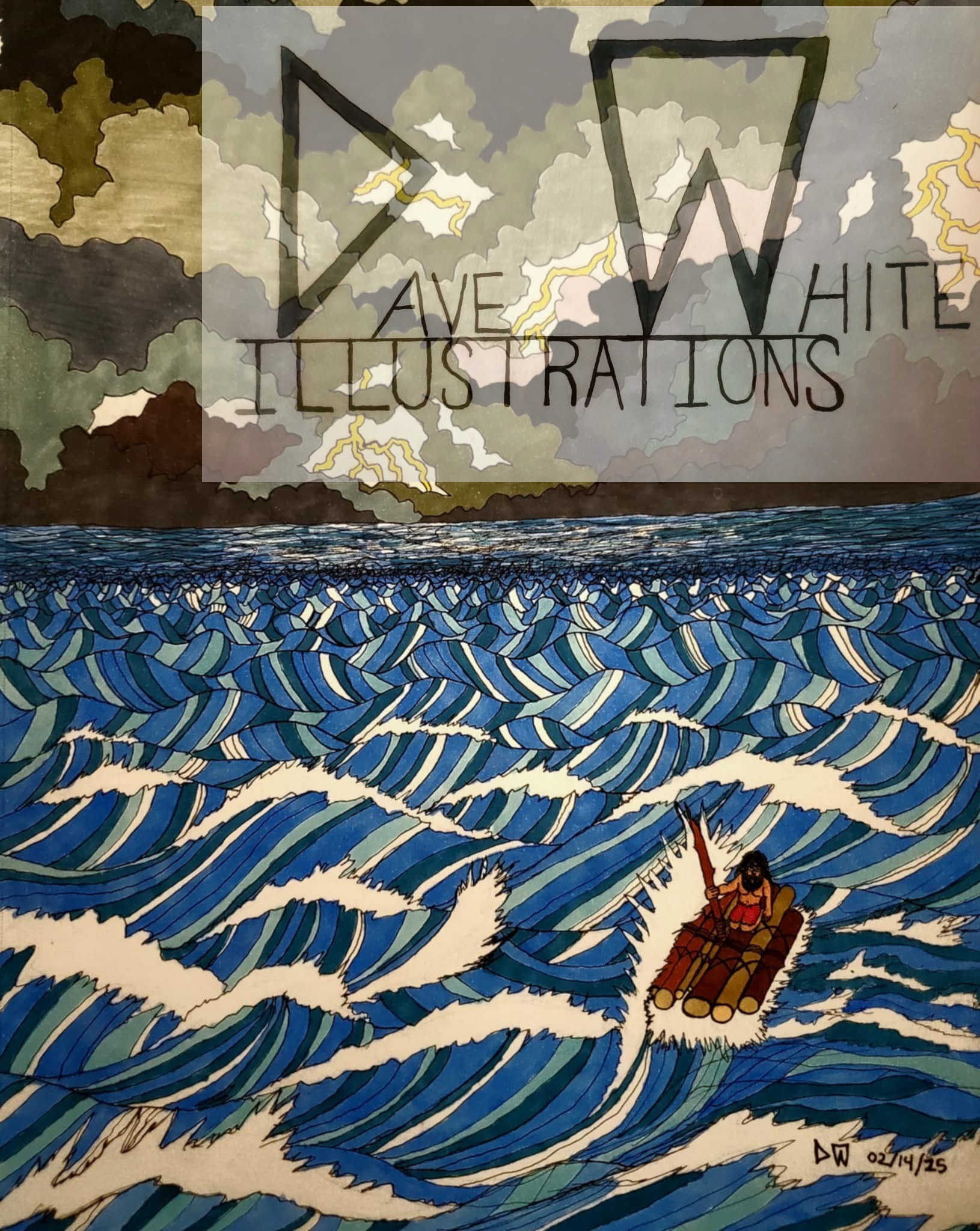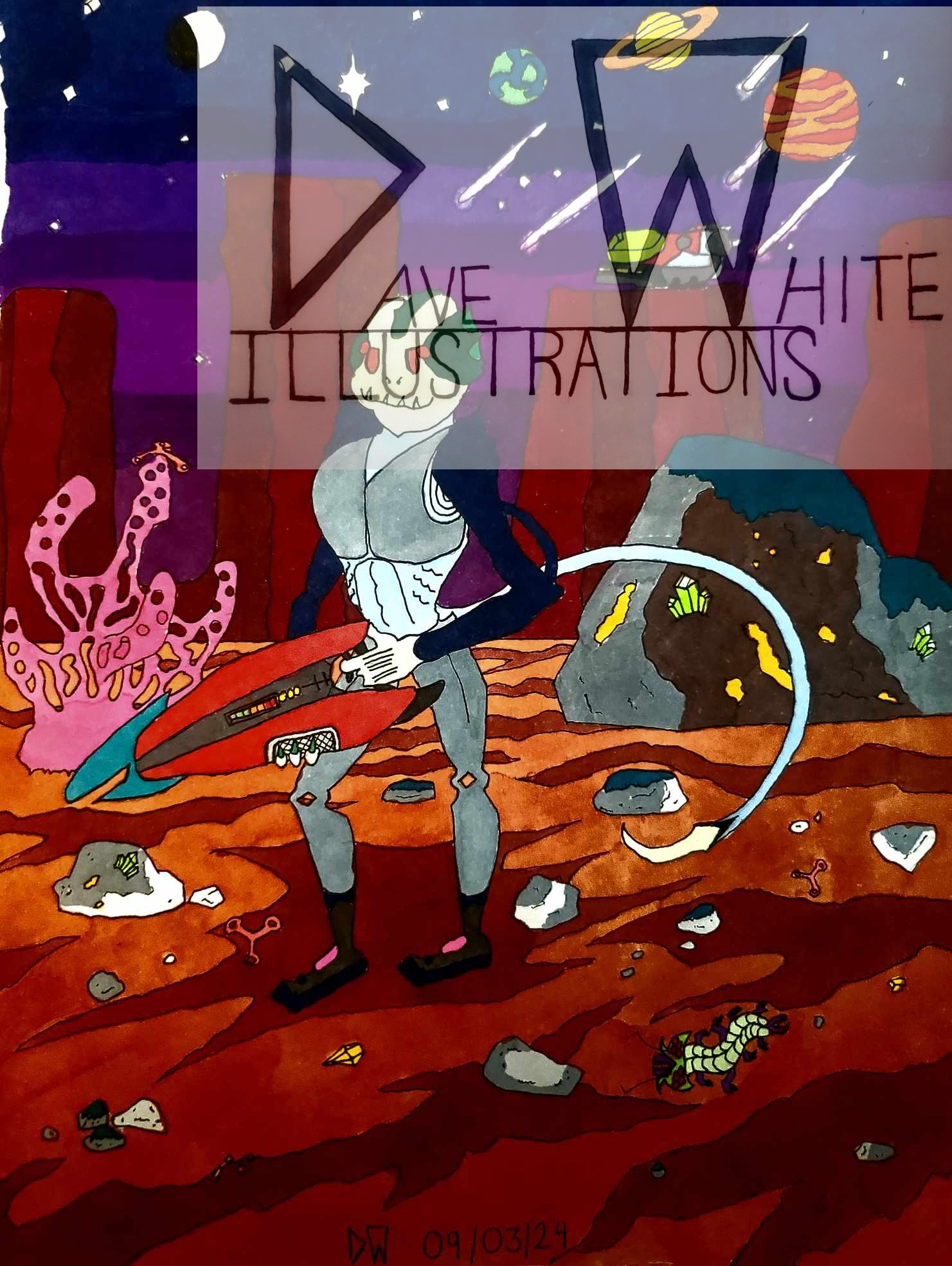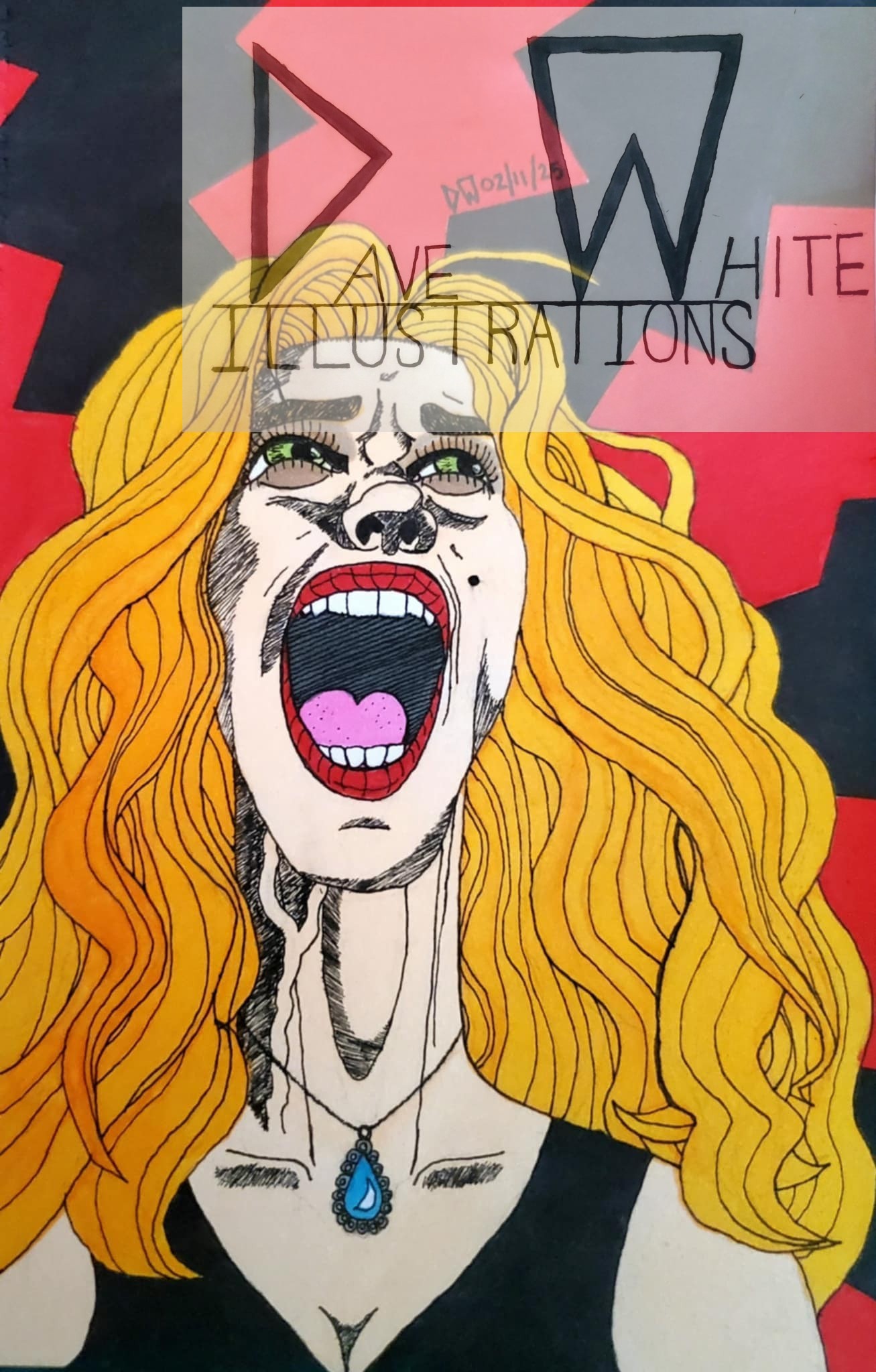White, Dave. Busy Mind. June 25, 2024, Dave White Illustrations.
I’ve walked through hell, unseen, unknown,
A silent storm I face alone.
There’s damage etched within my soul,
The cost of having a heart so whole.
I’ve fallen too fast, I’ve trusted too wide,
Loved too deeply, swallowed my pride.
But now I’m fractured, beyond repair,
Shadows of pain are all I wear.
I’ll never be who they want me to be,
The daughter, the friend, the fantasy.
I’ve spent my life trying to mold,
A version of me that fits their hold.
My friends call on me to be their guide,
My parents want a dignified daughter.
And the man I love?
He deserves the best,
But I’m just a heart locked in my chest.
How do you choose who to be for them all,
When love, unreturned, makes you feel so small?
I’d love to be perfect, to answer each plea,
But that’s not the person I can be.
I’d love to be cared for, to feel secure,
To be loved by someone steadfast and pure.
But the man I adore, too good to be real,
It is a dream I can touch but never feel.
I’m broken, bruised, used, and torn,
A soul too weary, a heart too worn.
Happiness stands as a stranger to me,
A fleeting vision I’ll never see.
But one day I’ll find the strength to flee,
From the weight of their overwhelming plea.
To escape these roles that tether me tight,
And reclaim my heart, my will, my light.
Until then, I carry the pain I’ve known,
A fractured self, a heart alone.
Dreaming of freedom, of love unstrained,
A life where I’m whole, unchained, unfeigned.





Leave a Reply